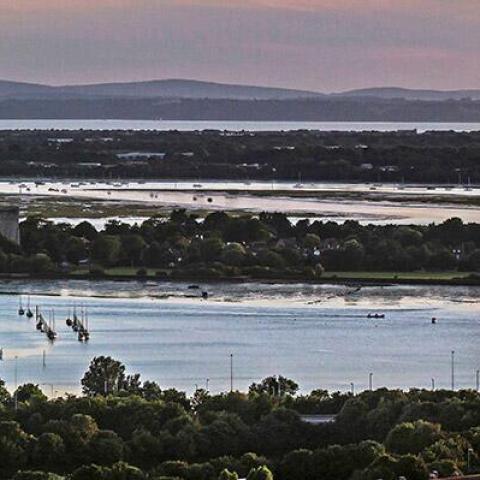
Centre for Blue Governance
We're committed to the protection, restoration and sustainable governance of aquatic environments
Aquatic environments cover more than 70% of our planet's surface, and the value of the global oceans is estimated to be US$24 trillion.
Our international community of inter-disciplinary researchers are working to tackle challenges impacting aquatic systems worldwide. These include the climate, pollution, and biodiversity crises, and the safeguarding of human health and wellbeing.
We are committed to research that supports evidence-driven policy and decision-making, and better governance of our aquatic environments for the common good. New holistic solutions are urgently needed.
Ready to explore?
Use the links below to jump to different sections of the page

Our mission
The Centre for Blue Governance (CBG) aims to promote sustainable aquatic resource management through research, policy development, social and environmental justice, and education. We provide inter-disciplinary expertise to create and implement blue growth strategies in countries and political entities around the world. We also strive to expand blue economic perspectives by encompassing marine and freshwater systems and conceptualising them as development spaces.
The CBG tackles current research themes as well as elaborating on and supplementing established ideas. Our work encompasses numerous sub-topics within five central themes.
Explore our themes below.
What is blue governance?
The blue economy is an economic term relating to the sustainable exploitation of marine and freshwater resources for economic growth, improved livelihoods and jobs, and overall aquatic ecosystem health.
Blue governance is an emerging concept which integrates Blue Economy and Blue Growth with the governance principle. Governance refers to structures and processes which ensure accountability, transparency, responsiveness, rule of law, stability, equity and inclusiveness, empowerment, and broad-based participation.
Blue Governance therefore relates to the public and private institutional mechanisms (such as institutional coordination, private-public partnerships and institutional arrangements) required to implement Blue Economy and Blue Growth initiatives, strategies and policies.
UNESCO Chair in Ocean Governance
A UNESCO Chair is a team led by a higher education or research institution that partners with UNESCO on a project to advance knowledge and practice in an area of common priority. The UNESCO Chair in Ocean Governance is led by the Centre for Blue Governance, University of Portsmouth, to develop around the domain of Ocean and inland waters governance (Blue Governance) that is transdisciplinary by nature and includes disciplines such as economics, management, law, policy, ecology, marine biology, geography, transport logistics and information science.
Professor Pierre Failler was appointed as the Chairholder of the UNESCO Chair in Ocean Governance in December 2021. A set of areas relating to education (PhD programme and visiting fellowship), the natural and social sciences, culture and communication, started to develop since then.
Follow us on X @UNESCOChair_OG

Research projects
MaCoBios

Marine SABRES
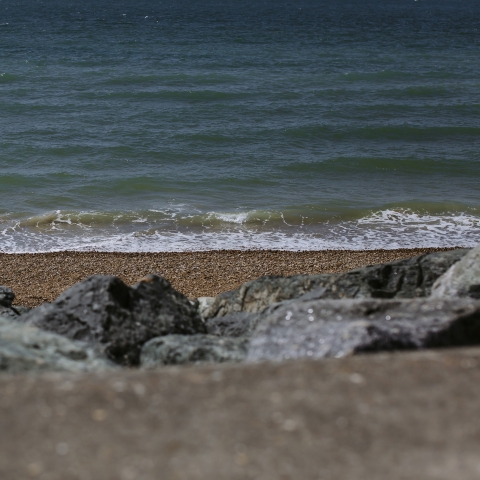
GREPPAO
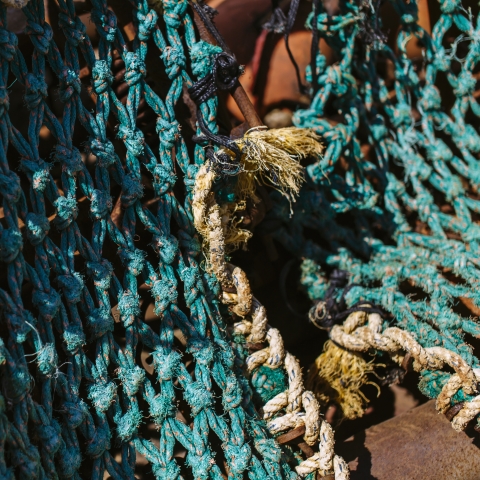
Gentoo Collaboration

BlueGreen Governance

Native Oyster Restoration
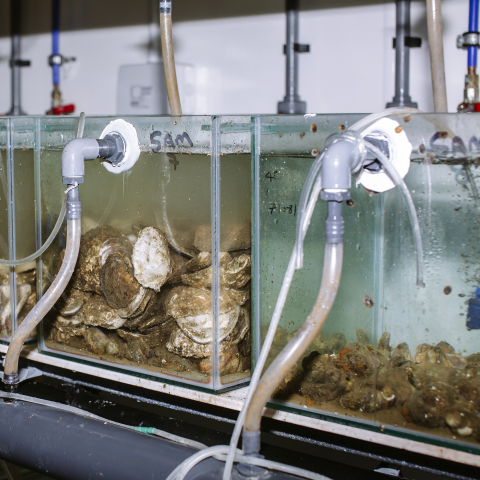
Competitive Angling as a Scientific Tool

Affiliated research centres and groups
UNESCO Chair in Ocean Governance
The UNESCO Chair in Ocean Governance develops around the domain of Ocean and inland waters governance (Blue Governance) that is transdisciplinary by nature.

Institute of Marine Sciences
Explore the marine ecosystems of the Solent European Marine Site at our shoreside marine station, complete with floating research platform, £2 million aquarium and laboratory suite, and 2 research vessels, RV Calypso and RV Noctiluca.

Revolution Plastics Institute
From combatting microplastics to analysing plastic policies around the globe, we’re putting our research into practice, working with local groups, organisations, businesses and individuals to solve the planet's plastic problem.
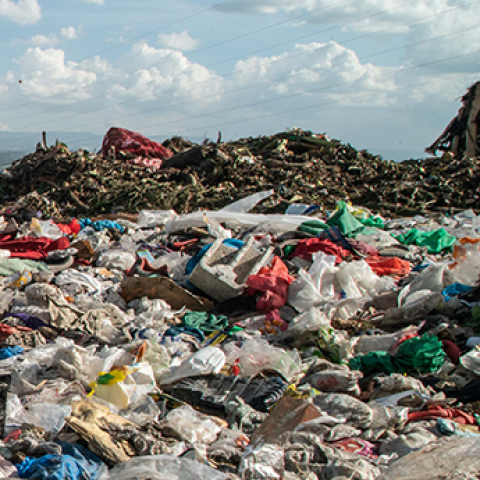
Publication highlights
2025
Revealing the status of Orbicella: main reef-builder of Morrocoy National Park and Cuare Wildlife Refuge, Venezuela, Southern Caribbean
Boadas, H., Bustillos, F. A., Cabada-Blanco, F., Herrera-Reveles, A. T., Narciso, S., Pereira, C., Pérez-Benítez, J., Rodríguez Quintal, J. G., Villamizar, E., Yranzo-Duque, A.
7 Feb 2025, In: PLoS One. 20, 2, p. 1-16, 16p., e0317728
Value chain opportunities for Pacific coastal resources
Bennett, M., Failler, P., Greer, R., March, A. L. A.
29 Jan 2025, In: Sustainability (Switzerland). 17, 3, p. 1-21, 21p., 1103
Water industry strategies to manufacture doubt and deflect blame for sewage pollution in England
Ford, A. T., Hammond, P., Singer, A. C., Woodward, J.
27 Jan 2025, In: Nature Water, 13p.
Offshore wind energy: assessing trace element inputs and the risks for co-location of aquaculture
Banfield, G., Beaumont, N. J., Hodkin, A., Watson, G., Watson, S. C. L.
19 Jan 2025, In: Nature Communications. 4, 10p., 1
2024
Trace element contamination biomonitoring: A comparative study between the polychaetes Alitta virens and Hediste diversicolor
Gobert, S., Lepoint, G., Richir, J., Sturaro, N., Watson, G. J., White, S.
15 Dec 2024, In: Environmental Pollution. 363, 10p., 125116
Latest news and blogs
News
View all
Study explores how fear impacts the financial health of the airline industry
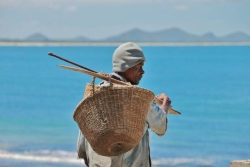
New Study Reveals Urgent Need for "Blue Justice" in the Emerging Blue Economy

New Study reveals solutions to help boost Caribbean fisheries and aquaculture
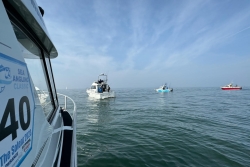
Using the power of citizen science to make the Solent’s fishing industry more sustainable
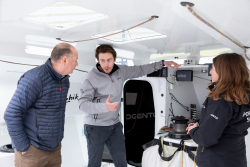
University teams up with Hampshire sailor to help protect the world’s oceans
Blogs
View all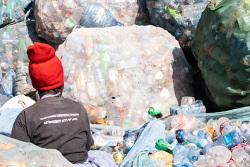
West Africa’s plastic waste could be fuelling the economy instead of polluting the ocean: experts
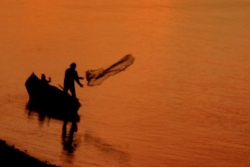
How marine fisheries can add millions of tonnes to Africa’s catch
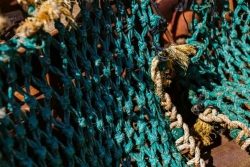
Can biodegradable nets tackle unsustainable fishing?
Recent events and seminars
BlueGreen Governance: Evolutionary perspectives on coastal governance
Chaired by UoP CBG Theme Lead Dr Gianluca Ferraro, with keynote speakers Professor Raoul Beunen (Open Universiteit, the Netherlands) and Professor Kristof Van Assche (University of Alberta), this BlueGreen Governance webinar introduced 'Evolutionary Governance Theory' and developing strategies for sustainability transitions in coastal governance.
Took place: Tuesday, April 30., 3.30-4.30pm GMT, online
"Deep Rising": Free screening hosted by the Centre for Blue Governance
During #GreenWeek2024 at the UoP, the Centre for Blue Governance was delighted to host a free screening of "Deep Rising", a film by Matthieu Rytz, and narrated by Jason Momoa.
This visually stunning film took our viewers inside the companies and technologies seeking to mine the ocean floor, and exposed the inner workings of the international organisation that is writing the rules for seabed mining, scrutinizing the case for and against that exploitation while exploring innovative solutions to both combat climate change and conserve the deep ocean.
It was lovely to see a fantastic turn-out of UoP staff and students at our CBG social event, and it has certainly sparked some interesting follow-on conversations. Check out our April newsletter for more info!!
Took place: Wednesday, April 24., 4.00-6.00pm GMT, Buckingham Building, Lecture Theatre 1.01
Io Capitano - A special screening
The Centre for Blue Governance and No.6 Cinema were proud to screen the award-winning film Io Capitano, directed by Matteo Garrone, which explores the theme of migration and the plight of migrants on their perilous journey across Africa to reach European shores.
To introduce the central theme of migration, identities and cinematic journeys, the screening was preceded by a short presentation by the CBG Labour and Human Rights Theme Leads, namely Professor Dr Leïla Choukroune (Professor of International Law and Director of the Centre for Global Justice and Rights) and Dr Sophie Quintin (Maritime security expert).
Took place: Thursday 28 November at 7pm at No.6 Cinema, Portsmouth (Bar from 6pm).
Centre management






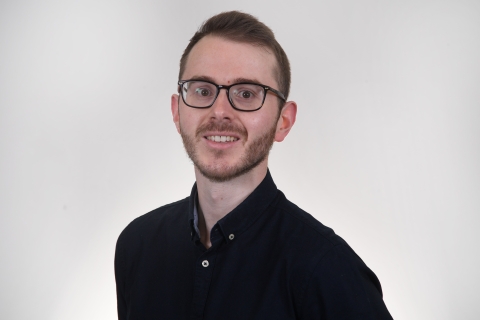
For more details on the work of the Centre, please contact Helen Currie by emailing helen.currie@port.ac.uk or calling +44 (0)2392 844184
Research themes
Sub-topics
- Ocean and Water Governance
-
Marine and freshwater policies
-
Maritime security
-
Spatial planning
Theme lead: Dr Gianluca Ferraro
Deputy: Dr Tegan Evans
Sub-topics
- Seafarers’ rights and well being
- Ship breaking industry and sites
- Fisheries and labour
- Blue tourism and labour
- Blue economy human rights and labour rights awareness
- Blue economy modern slavery survivors access to remedy
Theme lead: Prof. Leila Choukroune
Deputy: Dr Sophie Quintin
Sub-topics
- Fisheries management
- Fishing by-catch of birds, turtles and mammals
- Aquaculture development
- Habitat conservation and restoration
Theme lead: Dr Ben Drakeford
Deputy: Andy Forse
Sub-topics
- Marine renewables energies
- Logistics and safety
- Shipping
- Port management
- Oil spill prevention
- Biofouling and anti-fouling
- Off-shore technologies
Theme lead: Dr Negar Akbari
Deputy: Open chair
Sub-topics
- Marine and coastal ecosystem functioning
- Ecosystem carbon sequestration and storage
- Ecosystem resilience
- Marine debris litter and plastics
- Biodegradation and bioprospection
- Marine and coastal ecosystem service valuation
Theme lead: Prof. Joanne Preston
Deputy: Open chair
Our PhD students

Grégoire Touron-Gardic - Perspectives and Tools for improving Ocean Protection
About: Gregoire’s PhD is centred around three main and interdependent components of Blue Governance, as defined by the CBG. These components occur at different levels of intervention including: the “decision-making” aspect, i.e., how public policies can positively impact environment management; marine resources and the public policies which govern them; specific management tools, highlighting how public policies are implemented. Grégoire is doing a PhD by publication.
Expected completion: 2024
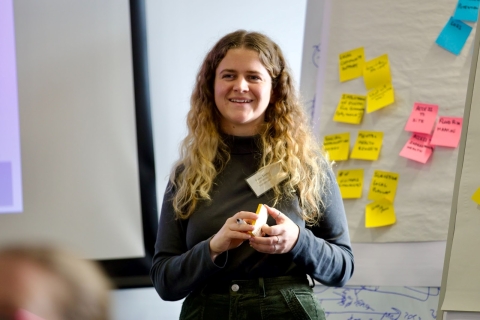
Daisy Taylor - From Marine Protected Areas to Nature-based solutions
About: Daisy's PhD will be exploring stakeholder and community interactions with marine and coastal nature-based solutions (NbS). The success of NbS has been connected to the inclusion of the community that surrounds them, with the rationale that by including the community as stakeholders, NbS may be developed with increased longevity, ecosystem services, benefits and acceptance. The project will evaluate how stakeholder understanding can impact the designation and implementation of marine and coastal nature-based solutions.
Expected completion: 2025
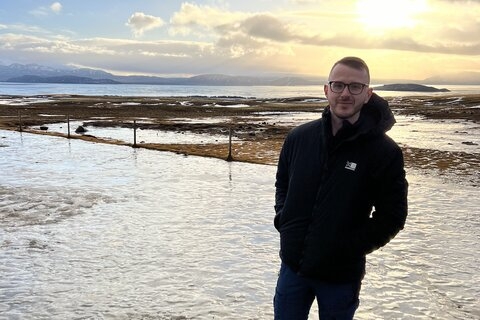
Oliver Hughes - Non-target analysis, suspect screening and the ecotoxicology impact of polar organic contaminants of emerging concern in UK river waters
About: Oliver’s PhD focuses on the chemical profiling of polar organics (e.g., pesticides, pharmaceuticals, PFAS, tyre compounds) in chalk-stream rivers using ChemCatcher passive sampling. The project aims to establish links between the presence and concentration of chemical contaminants and their mixtures, and the health and diversity of macroinvertebrate species. This work will provide valuable insights into the effects of chemical mixtures on aquatic ecosystems.
Expected completion: 2026
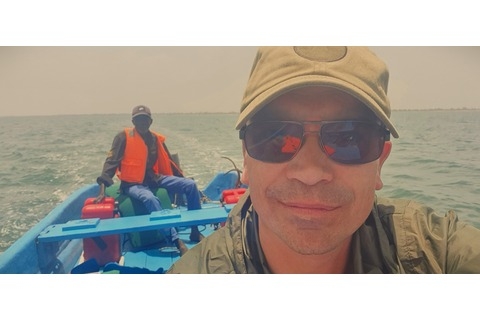
Toby Meredith - Investigating the use of drones for sea border surveillance and maritime search and rescue of migratory routes to post-Brexit UK: Frameworks, experiences and policies
About: Due to post Brexit border control changes, those wishing to seek asylum in the UK are having to use increasingly high risk methods to do so; mirroring migrant crossings in the Mediterranean. Using the marine migratory route for small boats in the English Channel, Toby's PhD will investigate the proliferation of drone technology and whether its use propagates the securitisation of asylum seekers and refugees. Drone technology can be used to search wide areas of the sea, either as part of border control operations or rescue missions. By investigating the experiences of NGOs, those seeking asylum and governmental organisations the aim is to inform policies and ethical frameworks on the use of drones in the English Channel. The PhD is funded by the South Coast Doctoral Training Partnership, with funds from the UK ESRC, and sitting within the Citizenship, Governance & Security thematic cluster.
Expected completion: 2026

Henry Obanya - Effects of car tire particles and additives in aquatic ecosystems
About: Henry’s PhD studies emerging environmental contaminants which are used as additives in making car tires. He is working with other experts to develop priority areas of research within this scope to find sustainable solutions to the rising issues. His work includes the chemical profiling of UK waters that collect road runoff from major highways. He also explores the behavioural effects of these contaminants on marine organisms.
Expected completion: 2025
Study with us
The Blue Review
Our regular newsletter, the Blue Review, provides an update of CBG activities, recent publications, and project updates. It also includes a wealth of opportunities such as events to attend, courses, job opportunities and conferences.
Contact us
Reach out to us, or follow us on social media
-
Email us at CBG@port.ac.uk
-
Follow us on X @blue_centre
-
Follow us on LinkedIn




